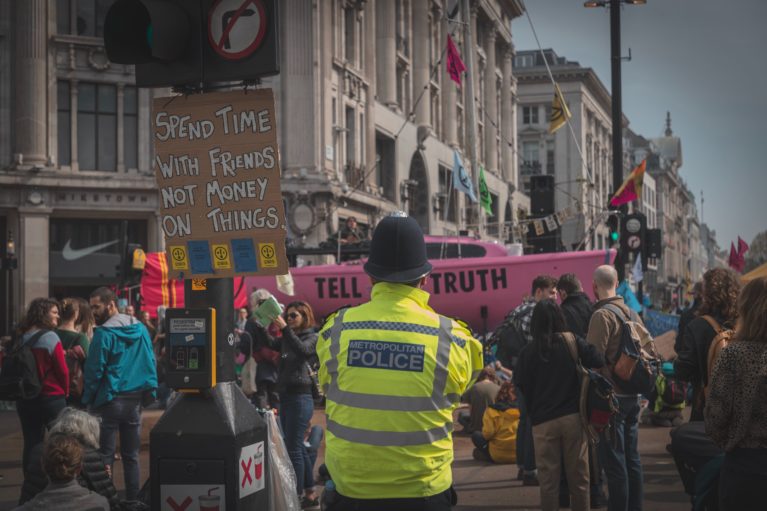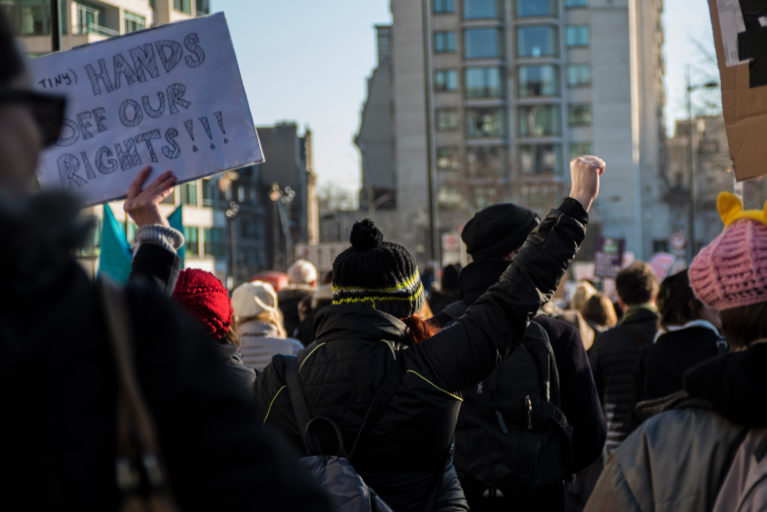Protest rights
Liberty intervenes in fracking protesters’ sentencing appeal
Posted on 16 Sep 2018
Liberty has today intervened in the case of three environmental activists who are appealing against their long prison sentences.
Liberty has today intervened in the case of three environmental activists who are appealing against their long prison sentences.
Simon Roscoe Blevins, Richard Loizou and Richard Roberts were convicted of causing a public nuisance in September 2018 after taking part in a four-day protest blocking a convey of lorries from entering the Preston New Road fracking site in July last year.
Blevins and Roberts were sentenced to 16 months in prison. Loizou received a 15-month sentence. Their appeal will be heard on Wednesday 17 October in the Court of Appeal.
Intervening in the case, Liberty argues the disproportionate length of the sentences breaches the activists’ fundamental human rights and will have a chilling effect on protest.
Emma Norton, Head of Legal Casework at Liberty, said: “The right to protest is fundamental to democracy, and civil disobedience plays a critical role in voicing the conscience of a community when the law falls short of justice.
“When people break the law, they rightly expect to face fair consequences, but the disproportionate punishment of protesters betrays our values as an open society where we can stand up to power, and risks deterring people from exercising their right to dissent.”
Out of step
In detailed submissions to the Court, Liberty asserts that the sentences are disproportionate and at odds with decades of rulings made both at home and at the European Court of Human Rights.
The right to protest has been recognised by UK courts for 200 years – and custodial sentences have only been imposed in protest cases involving or threatening violence.
The right to protest is also protected by the European Convention on Human Rights. Repeated judgments of the European Court suggest custodial sentences for non-violent protest may be disproportionate to the offence and may amount to a breach of human rights.
Chilling effect
Liberty also contends the disproportionate punishments at issue in the appeal will discourage others from exercising their protest rights in the future.
The organisation is particularly concerned that the decision suggests the three applicants were sentenced to immediate imprisonment because they refused to renounce their views – compounding the chilling effect of the judgment.
In sentencing, the Judge believed the three men could not be rehabilitated because “each of them remains motivated by an unswerving confidence that they are right”. The ruling inevitably carries the risk that the more committed the protester is to the cause, the more likely they are to receive a custodial sentence.
Contact the Liberty press office on 020 7378 3656 / 07973 831 128 or pressoffice@libertyhumanrights.org.uk
I'm looking for advice on this
Did you know Liberty offers free human rights legal advice?
What are my rights on this?
Find out more about your rights and how the Human Rights Act protects them
Did you find this content useful?
Help us make our content even better by letting us know whether you found this page useful or not


